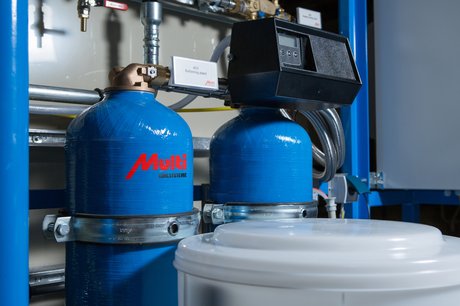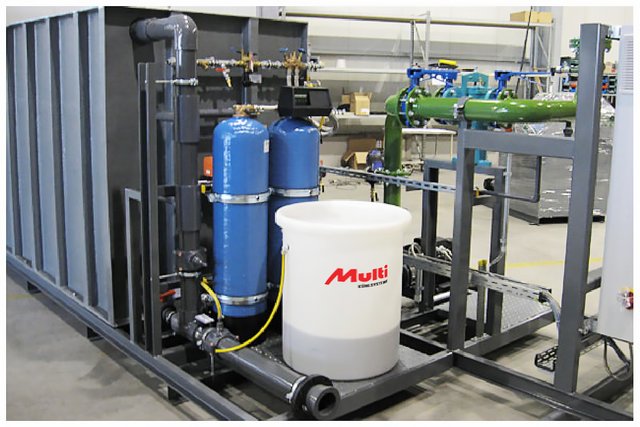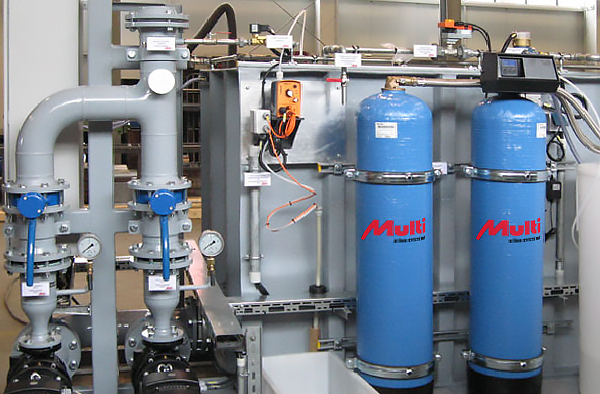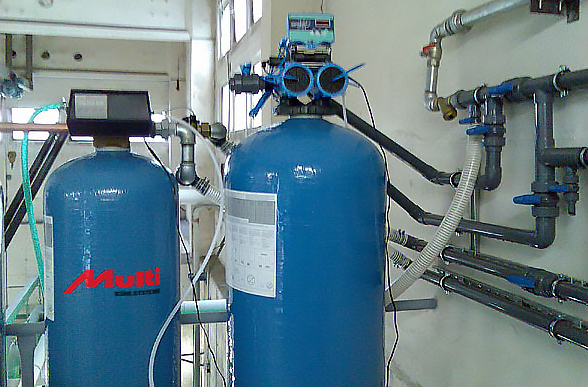An analysis of the cooling water of a recooling plant is essential for the technically and hygienically impeccable operation of the plants. The chemical-physical and microbiological parameters of cooling water are an important indicator for early detection and prevention of system faults and malfunctions of individual components.
Among other things, the risk of scale precipitating in the system may be estimated by measuring the carbonate hardness (also referred to as water hardness). Suitable measures, such as retrofitting a softening plant or adding a hardness stabiliser, can then be taken to minimise it.
We recommend an annual check of all essential chemical-physical water parameters to ensure the functionality of the recooling plant.
The legislator specifies specific examination intervals for microbiological analyses. More information on the 42. BImSchV (42nd Federal Immission Control Ordinance) can be found here.




